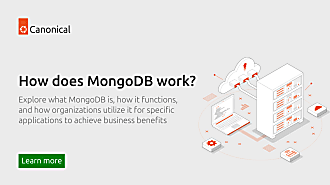anaqvi
on 10 December 2019

We’re excited to announce the release of MicroK8s with Kubernetes 1.17! MicroK8s is a Kubernetes cluster delivered as a single snap package – it can be installed on any Linux distribution which supports snaps. MicroK8s is small and simple to install and is a great way to stand up a cluster quickly for development and testing. Try it on your laptop!
Try it out today: sudo snap install microk8s --classic --channel=1.17/stable
What’s new in MicroK8s Kubernetes 1.17
- New addon: kubeflow. Give it a try with `microk8s.enable kubeflow`.
- MetalLB Loadbalancer addon, try it with `microk8s.enable metallb`. Thank you @dangtrinhnt for your efforts here.
- Separate front proxy CA, courtesy of @giner
- Linkerd updated to v2.6.0, thank you @balchua
- Jaeger operator updated to v1.14.0
- Updating prometheus operator (latest). Thanks @rlankfo
- Istio upgraded to v1.3.4. Thank you @nobusugi246
- Helm upgraded to 2.16.0, thank you @balchua, @fabrichter and @icanhazbroccoli
- Helm status reported in `microk8s.status`, thank you @greenyouse
- Set default namespace of `microk8s.ctr` to `k8s.io`, thank you @joestringer
- Better exception handling in the clustering agent, thank you @shashi278
- Fixes in cluster upgrades, courtesy of @strigona-worksight
- `microk8s.inspect` now cleans priority and storage classes. Thank you @rbt
- `microk8s.inspect` will detect missing cgroups v1 and suggest changes on Fedora 31. Thank you @soumplis
Get In Touch
To learn more and try out MicroK8s visit the official docs. Contribute to the project at Github or open an issue. Chat with us on the Kubernetes Slack, in the #microk8s channel or tag us @canonical, @ubuntu on Twitter (#MicroK8s). We are excited to see your contributions to open-source and hear your feedback!



